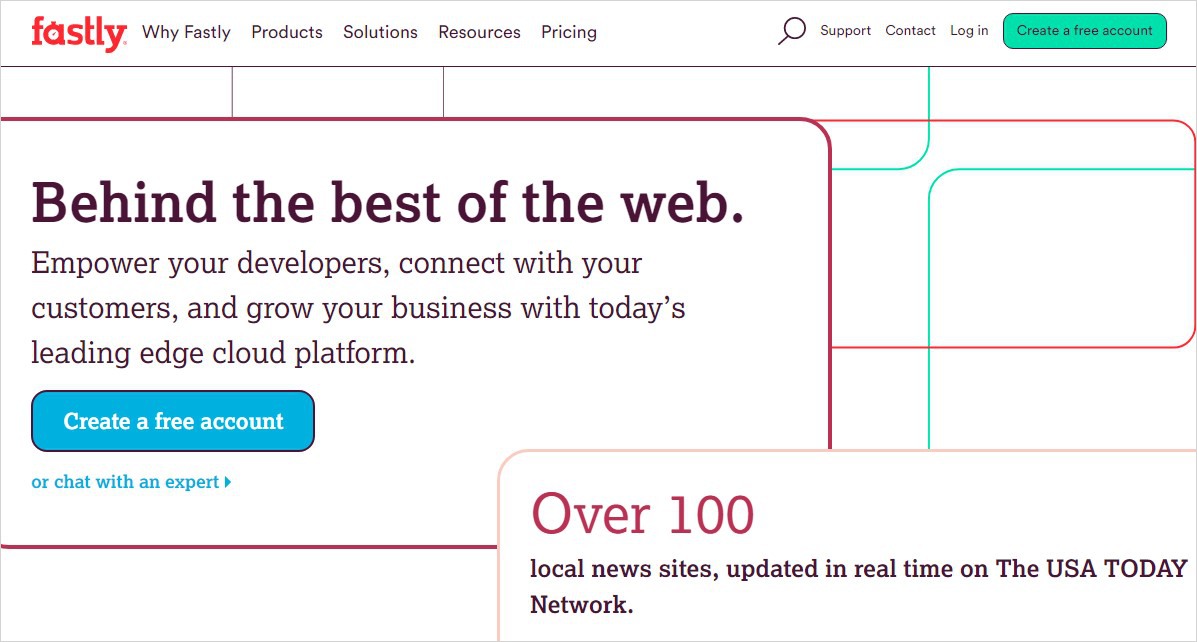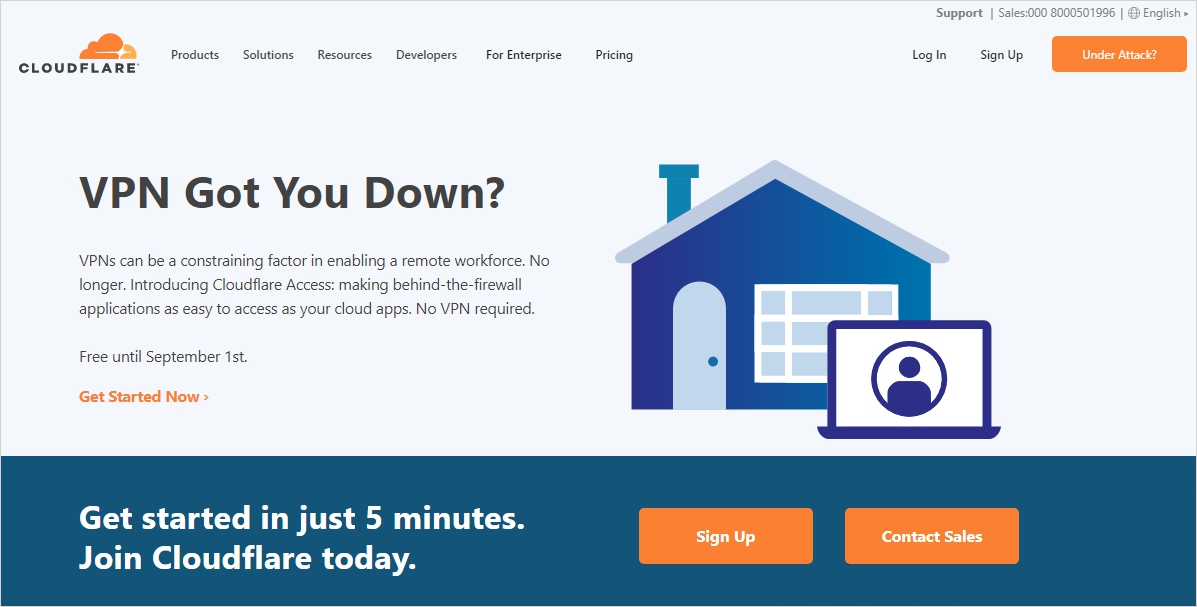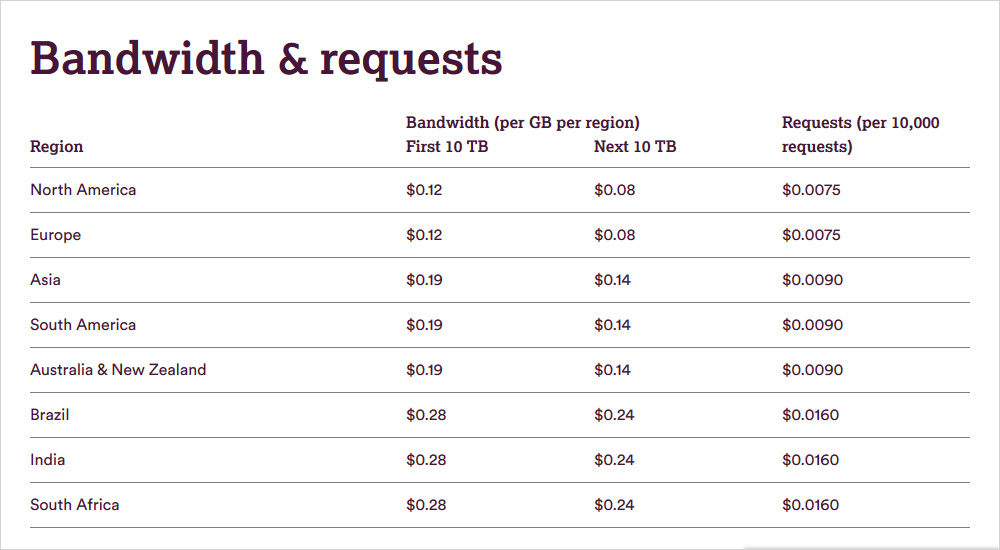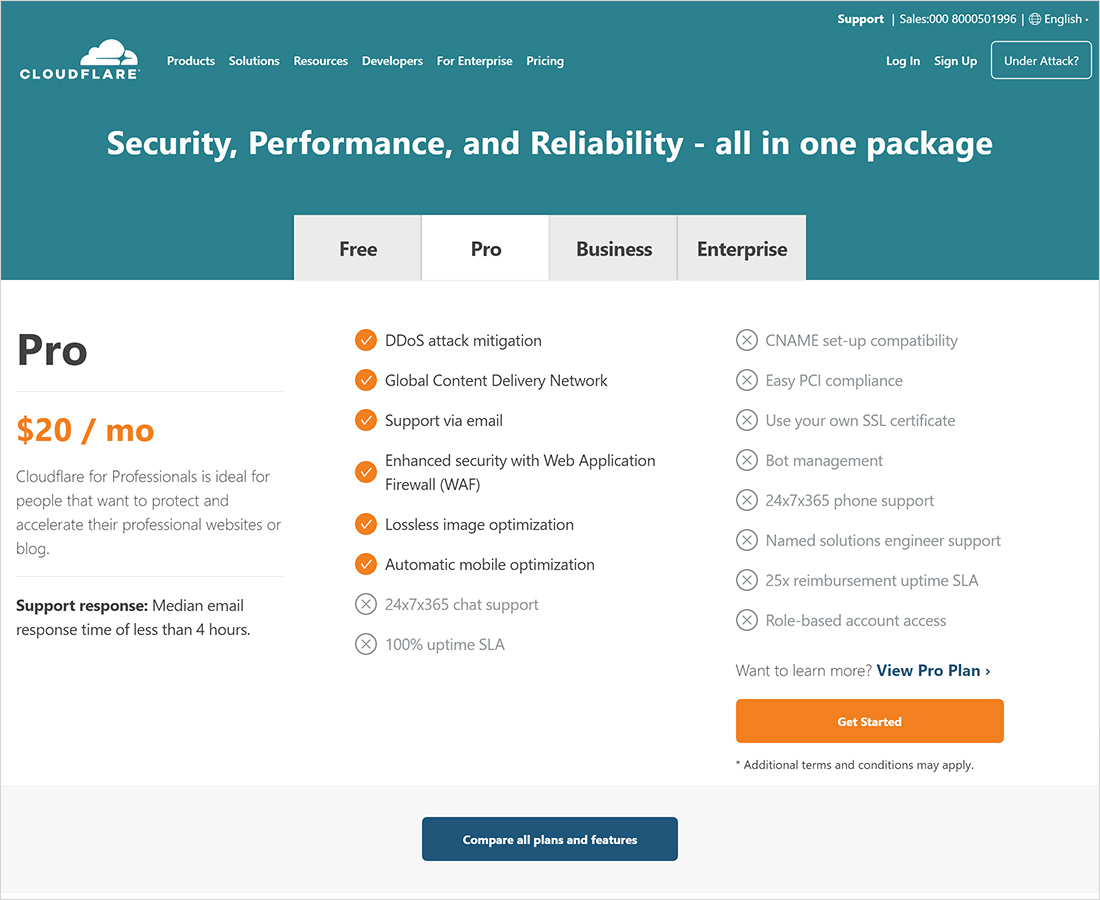Fastly vs Cloudflare Differences

Fastly vs Cloudflare CDN is a constant debatable subject. Well not anymore, I am here to shed some light on the major differences between Fastly and Cloudflare. Read this article to understand which CDN suits whom and decide which one will work best for you!
Introducing Fastly

Fastly was first coined in 2011, relatively a new player in the CDN industry. By 2015, the company has raised $130 million from big investors including IDG Ventures, Battery Ventures, Amplify Partners, August Capital, etc. Fastly asserts itself ‘new generation CDN service’ with the ability of real-time caching. Basically, it happens to make changes instantly and the platform is capable of delivering ‘uncached’ content as well. Apparently, Fastly Cloud Accelerator partnership with Google enables a direct connection between Google cloud backbone and Fastly. Some of its notable customers are The New York Times, Disney+, Pinterest, Airbnb, Conde Nast, Shopify, Wayfair, and many more.
What are some benefits of Fastly?
Faster Storefront Delivery:
With Fastly, you can accelerate the delivery of custom content like shopping cart content, last viewed products, and login messages. It offers ESI (edge side include) that allows a website’s caches to mix and match cacheable (static content) and uncacheable (dynamic content). This means it is capable of ‘hole-punching’ that allows you to inject visitor-specific HTML before sending out a full-webpage.
Instant content update:
Fastly is a self-proclaimed “new generation” CDN, comprised of strategically placed PoPs for real-time distribution of websites. Instant purge allows users to retrieve accurate content across a multi-channel strategy, for instance, changes to catalog, inventory, or prices. With surrogate keys, it purges related sets of objects in a single request, almost instantly.
Protection against traffic spikes:
Powerful and efficient Fastly network is capable of handling heavy traffic like the peak holiday season, flash sales, or potential DDoS attack. With Fastly origin shield, you can minimize origin traffic while updating or publishing large volumes of new content by collapsing requests from all Fastly PoPs to an origin single request. There is also a feature named Soft Purge, that ensures an uninterrupted use experience even when the origin server is down or taking longer than intended to update. In this case, it simply displays the stale content rather than an error message, until Fastly fetches the new content.
Ease of use:
It takes less than 30 minutes to install Fastly’s free, open-source extension. Purge calls can be requested with just triggering an API call, without having to log into your Fastly account. Moreover, Fastly offers free standard customer support. However, if you feel the need for premium customer support, you can add it for an additional monthly fee.
What are some limitations of Fastly?
- They need to improve their customer support.
- The number of PoPs is comparatively less.
Introducing Cloudflare

Cloudflare offers unique CDN services with an advanced security system. It has more than 200 data centers in the different parts of the world. It is actually a reverse proxy, which means when you request for content from a certain location, your request is forwarded to the nearest placed Cloudflare server. Therefore, not only it offers great security but it also makes the website load faster.
Cloudflare is the best-known CDN out there, mainly because it offers a lot of benefits in less or for free. For instance, it offers SSL certificates in its free version. Its free version is suitable for entry-level websites with standard content and moderate traffic. However, clients can always upgrade to the premium plans ($20 or $200) for slightly-high density traffic websites. Cloudflare is also a Google cloud platform CDN interconnect program along with other CDN services including Fastly, Akamai, Highwinds, EdgeCast, and Level 3.
What are some benefits of Cloudflare?
Single-click application settings
They offer the easiest way to optimize and secure the websites to users with just a single click.
Auto minification:
Cloudflare smartly removes unwanted characters like comments, new line characters, whitespaces, block delimiters, etc, that are not necessarily needed for a webpage to serve. It supports JavaScript, CSS, and HTML file types for minification. By removing those unwanted characters, file size reduces, thus, resulting in faster loading of the page.
Advanced security:
Cloudflare provides WAF (for paid plans) that includes default rulesets to mitigate attacks specifically targeted towards eCommerce websites. Any website having sensitive information transaction, SSL is essential for that. Cloudflare offers free SSL certification for a secure transaction of information from your personal device to your server. Moreover, with paid plans, you also get DNS security that helps you mitigate the request forgery vulnerability. You can enable DNS security with domain name system security extension (DNSSEC) or under the DNS tab.
Image optimization:
An average web page content contains 60% of image files. Therefore, it is essential to optimize the images to optimize the overall performance of a web page. Cloudflare Polish can help you out with that. It optimizes the image files to a smaller size, resulting in faster load time. Polish feature also supports WebP compression and is available with paid plans only, which is compatible with Joomla, WordPress, and other platform websites as well.
Browser Caching:
With Cloudflare, you don’t have to use any third-party plugin or writing .htaccess, to leverage browser caching. Rather, you can have it using Cloudflare under the “Caching” tab. It helps the browser to cache static resources for a longer period to respond instantly to repeat requests.
Load balancing:
Cloudflare ensures 24×7 availability of your website by distributing your web traffic to multiple servers. Hence, even if one of your servers is down, the user will still get the response to their request from other available CDN servers.
Optimized network routing:
Cloudflare recently introduced a new service, Argo. Its main objective is to lower the latency to deliver the best web experience via a faster and secure route. By optimizing the route for the data, it delivers a faster and safer web experience to the users.
What are some limitations of Cloudflare?
- No customer support for free version users
- Lengthy and ineffective cache
Fastly vs Cloudflare Key features
Fastly vs Cloudflare: Pricing

Let’s start with comparing the prices for both. Fastly offers a pay-per-use pricing structure. Users have to pay an initial amount of $50 per month. After that, additional costs are calculated according to the location and bandwidth required:
Bandwidth for the Content and Streaming Delivery is calculated in terms of GBytes delivered via Fastly CDN into different locations. Similarly, HTTP and HTTPs requests are accumulated in units of 10K by location. The total amount to be paid is then calculated at the bandwidth rate. They offer a pricing estimator which can give you a fair idea about your spending.

On the other hand, Cloudflare rather offers a flat pricing structure. It is known for its reasonable, transparent, and predictable pricing structure. It mainly offers three plans:
| Plan | Pricing | Description |
| Free | $0.00 (free) | Suitable for personal websites that want to enhance the web experience for their end-users. |
| Pro | $20/month | Suitable for professional websites, blogs, portfolios, etc with standard content. |
| Business | $200/month | Suitable for websites requiring advanced security, performance, and prioritized support |
| Enterprise | Custom | Suitable for big websites requiring enterprise-level security, performance, & instant customer support. |
The free version is unlimited and unmetered. You can continue with it as long as you want. Moreover, it offers set basic features you need for a basic website including 3-page rules, shared SSL certificate, Global CDN, and unmetered mitigation of DDoS attack. Here at Templatetoaster website builder you may read Cloudflare vs Stackpath, Imperva vs Cloudflare, Sucuri vs Cloudflare, Cloudflare vs Cloudfront, Cloudflare vs Akamai.
Fastly vs Cloudflare: Performance

Indubitably, Fastly offers a remarkable dynamic content delivery service. Considering it has some pretty decent features like instant-purging, real-time analytics, that puts it right in the middle of the competition with other leading CDN providers. Websites are incorporating Fastly’s limited but quality PoPs placed strategically around the world for a decent performance. It offers optimized performance with mobile and API content. However, it lacks advanced security.
Meanwhile, Cloudflare is the most used CDN out there. With its excellent performance and mobile optimization, it is gaining popularity globally. It accelerates the internet application by delivering faster for an optimized experience. The sudden growth in mobile usage is remarkable
Fastly vs Cloudflare: Security

As mentioned before, Fastly is real-time CDN that is built with mobile in mind to support real-time stats, reports, and streaming. You get the basic security against DDoS attacks and other security threats with Fastly. However, there is nothing exceptional about the security offered by Fastly.
Cloudflare is basically a reverse proxy CDN, which means users have to change their DNS in order to make Cloudflare CDN act as an intermediate between the visitor and the web server hosting that website. This way it implements the security and optimization functionalities of JS, HTML, and CSS, which certainly makes it unique from other CDN services. Moreover, it offers SSL certificates in its free version, which means clients can get basic security features for free.
Fastly vs Cloudflare: Customer Support

You will probably use the community forum of fastly if you encounter any issue. Although they do have 24/7 customer support it can be contacted via emails only. It is rather a slow process, therefore, clients usually prefer the community forum. However, with Cloudflare, you have the option of 24/7 customer support via email and calls as well. But if you are not paying for the services, you don’t get any customer support. In other words, Cloudflare offers customer support to paid plan users only. However, Cloudflare has the richest community forum in the CDN industry. Therefore, even if you are using the free version, you will still be able to get the needed help.
Fastly vs Cloudflare: Which one to choose?
Due to its pay-per-usage billing, websites with fluctuating traffic tend to prefer Fastly. It enables a flexible billing that eliminates the need to pay for a flat pricing plan, even though they are not even utilizing the features offered. However, Fastly is mostly favored by mainstream websites with moderate traffic because clients have to at least $50 a month for minimum services. Some of the notable websites using Fastly CDN are GitHub, Kayak, Pinterest, Vox Media, Stripe, Fast Company, Etsy, Imgur, etc.
Considering it is the only CDN to provide an unlimited free version, it is mostly favored by newbies who want to understand and test how CDNs work and even if they actually need it or the entry-level website with standard content and fair traffic. However, Cloudflare also offers Pro and Business plans at flat pricing of $20 and $200 respectively. Its transparent pricing eliminates the chances of hidden prices, resulting in more confident clients. They also have an Enterprise plan that can be customized according to the requirements of an organization. Some of the notable websites using Cloudflare CDN are Embed.ly, FounderLY, StackOverflow, CodeGuard, APNIC.net, Montecito Bank, etc.
Fastly vs Cloudflare : Final Words
Fastly might not look like much at first, but it certainly can accomplish a lot with its dynamic features. On the other hand, Cloudflare is already the leading CDN in the industry with the largest client base. This article gives you some major comparisons between these two CDN providers in terms of benefits, limitations, performance, security, pricing, and customer support. Hopefully, it will help you out to take your pick.
Fastly vs Cloudflare: Frequently Asked Questions (FAQs)
What is Fastly?
Fastly is a popular CDN provider that is known for dynamic real-time caching. They enhance the speed and performance of a website and also support mobile optimization.
Who uses Fastly?
Fastly is mainly used by mainstream websites that have fluctuating traffic due to its pay-per-use pricing system. Some of the notable websites using Fastly CDN are GitHub, Kayak, Pinterest, Vox Media, Stripe, Fast Company, Etsy, Imgur, etc.
What is Cloudflare?
Cloudflare is a well known CDN provider with the largest client base because of its free version and rich community forum. It is a reverse proxy that enhances the performance of a website and combat against web security threats.
Who uses Cloudflare?
Cloudflare is mostly favored by newbies or entry-level startups due to its free version that offers basic features for free. Some of the notable websites using Cloudflare CDN are Embed.ly, FounderLY, StackOverflow, CodeGuard, APNIC.net, Montecito Bank, etc.
How much Fastly CDN services cost?
With a minimum fee of $50 a month, it can fluctuate depending on the bandwidth consumption and location. A detailed break-down of the costs is given below:
| Location | Bandwidth (Per GB per location) | Requests (per 10K) | |
| First 10 TB | Next 10 TB | ||
| North America | $0.12 | $0.08 | $0.0075 |
| Europe | $0.12 | $0.08 | $0.0075 |
| Asia | $0.19 | $0.14 | $0.0090 |
| South America | $0.19 | $0.14 | $0.0090 |
| Australia & New Zealand | $0.19 | $0.14 | $0.0090 |
| Brazil | $0.28 | $0.24 | $0.0160 |
| India | $0.28 | $0.24 | $0.0160 |
| South Africa | $0.28 | $0.24 | $0.0160 |
How much Cloudflare costs?
Cloudflare offers three basic plans with flat pricing and pre-determined features and an “enterprise” plan with custom pricing and features. A detailed break-down of the plans are as given:
| Plan | Pricing | Description |
| Free | $0.00 (free) | Suitable for personal websites that want to enhance the web experience for their end-users. |
| Pro | $20/month | Suitable for professional websites, blogs, portfolios, etc with standard content. |
| Business | $200/month | Suitable for websites requiring advanced security, performance, and prioritized support |
| Enterprise | Custom | Suitable for big websites requiring enterprise-level security, performance, & instant customer support. |
Cloudflare vs Fastly- which CDN provider is the better one?
If you are a newbie looking for affordable CDN with basic performance and security features, Cloudflare will work best for you. However, if the traffic on your website fluctuates a lot, then we advise you to go for Fastly to optimize the pricing and features in a better way.
Related reading
Build a Stunning Website in Minutes with TemplateToaster Website Builder
Create Your Own Website Now
Hi, very good post.
Does location of the server affects the seo of the website?
Nice blog, Fastly is more secure than ClouldFare, totally recommend it.
Fastly is very easy to use for beginners and its features are easily understandable.
New and extry level websites can go with Fastly, it is useful for them.
Which one you would like to suggest to a new business person?
I am still using Cloudflare and I want to switch on fastly, is it the right decision?
I have taken the business plan of Fastly and this is really amazing and it makes my website faster.
Wonderful post and your article are really very supportive, I love this.
Does domain location effect on the speed of a website or not?